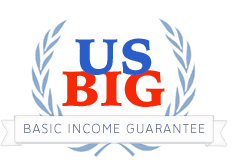Introduction to the Series: The Basics of Basic Income
Michael Anthony Lewis
Professor, Silberman School of Social Work at Hunter College
Those who followed the U.S. Democratic Primaries have probably heard of Andrew Yang. Yang is a lawyer and entrepreneur who vied to represent the Democratic Party in the general election for President of the United States. Yang’s signature policy proposal was what he called the Freedom Dividend. By now, we all know that Yang didn’t win the nomination; Joe Biden did. But even though he didn’t win, Yang’s Freedom Dividend idea lives on.
The Freedom Dividend is a version of what’s called a universal basic income (UBI) or, more simply, basic income (BI). A UBI or BI is an amount of money that people would periodically receive, on an individual basis, and without income/asset-test or work requirement. The fact that UBI recipients wouldn’t have to pass an income/assets-test means that their incomes plus the value of their assets wouldn’t have to fall below a certain level in order to qualify for the program. Saying that UBI recipients wouldn’t have to meet a work requirement means that they wouldn’t have to work, or engage in some other type of work-related activity, in order to qualify. I said above that although Yang lost, his Freedom Dividend idea lives on. What did I mean?
UBI is not a new idea. I’ve been writing, off and on, about it for over 20 years. And others wrote about UBI, or related ideas, long before I did. What Yang did is help put the idea of UBI on U.S. citizens’ radars in a way I hadn’t seen before. I recall being astonished as I watched mainstream candidates for President, during a couple of debates, take positions on UBI, all because Yang made it difficult for them to keep ignoring the idea.
With more people expressing interest in an idea that might be relatively new to them, it occurred to me that I might be able to play a role in helping get folks up to speed on some of the basics of basic income. I’m an educator by profession; specifically, I’m an educator at a public institution. At one time, this institution was free of charge. Those days are long gone, at least for now. Yet I have a job because New York, and to lesser extent, U.S., residents, including the students I teach, are willing to pay my salary.
In the time I’ve worked on UBI, I’ve learned a few things about it. In the next few weeks, I’ll write a series of short expository pieces on different aspects of UBI. These will be articles that UBI newbies can turn to if they’d like to learn something about the basics surrounding the idea. I see this as one small way I can give back to the residents of my city, state, and nation in return for them allowing me a livelihood. But, of course, those outside of the U.S. are allowed to take a look as well. Given the globalized nature of the world we live in, I’m sure I owe something to non-U.S. residents as well.



Trackbacks & Pingbacks
[…] Lewis, Michael Anthony (n.d.b). “Introduction to the Series the Basics of Basic Income”. USBIG Blog. https://usbig.net/introduction-to-the-series-the-basics-of-basic-income […]
Leave a Reply
Want to join the discussion?Feel free to contribute!